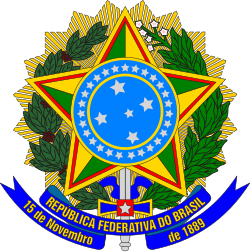This article needs to be updated.(May 2017) |

| This article is part of a series on the |
 |
|---|
The impeachment proposal against Michel Temer , the former President of Brazil and former vice-president, consisted of an open procedural matter with a goal to preventing the continuation of the mandate of Michel Temer [1] as vice president/acting president of the Republic of Brazil. [2] Temer (as vice president) served as Acting President during the Impeachment process against Dilma Rousseff. The process began with the performance of judicial decision on April 6, 2016, the President of the Chamber of Deputies, Eduardo Cunha, to form commission for termination analysis of liability for crime offered by Mariel M. Marra. Four other requests for impeachment were presented to Cunha. [3]